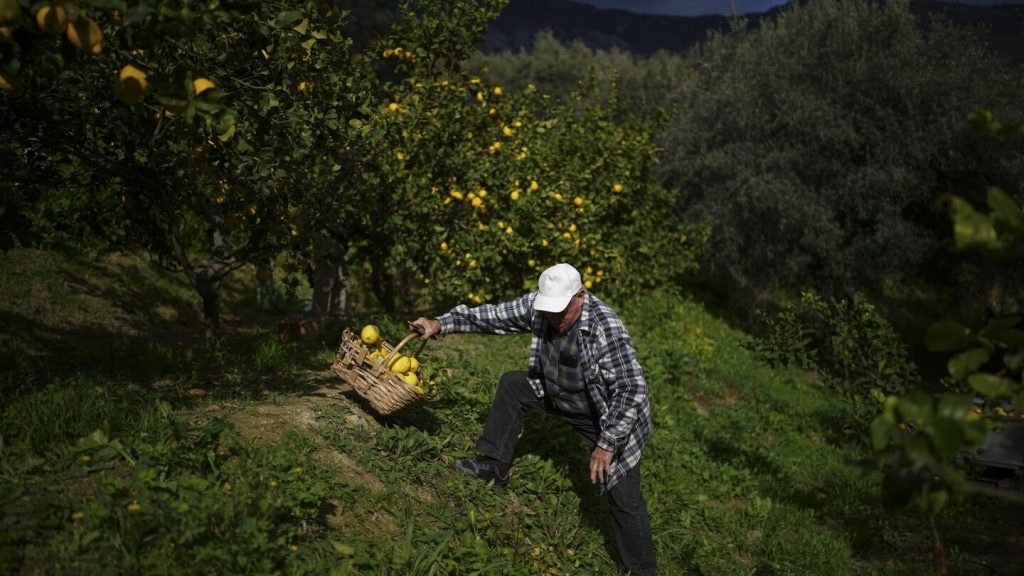The town of Menton in the French Riviera hosts an annual lemon festival, showcasing elaborate floats and park displays made from over 140 tons of citrus. However, the festival does not feature the prized Menton lemon due to its limited availability. Once a thriving lemon-growing region in Europe, Menton faced competition and urbanization that led to the decline of its lemon orchards. Today, only 56 small producers cultivate the exclusive Menton lemon, with concerns about the impact of climate change on their production.
Pierre Ciabaud, a sixth-generation lemon-grower, had to break from tradition to support his family by opening a hardware store. Now retired, he tends to the family’s grove overlooking Menton, amidst a landscape dominated by buildings rather than lemon groves. The region’s annual lemon production has significantly decreased, leading to fears about the economic viability of lemon farming for future generations. The Menton lemon’s unique flavor, influenced by the region’s climate and soil, has earned praise from chefs like Mauro Colagreco, who uses it in his three-Michelin-star restaurant, Le Mirazur.
The Menton lemon received a geographical indicator in 2015, protecting its name and aiding in its marketing. The only lemon in France with this distinction, the Menton lemon is renowned for its distinctive taste and aroma. Laurent Gannac, a lemon grower in the region for 30 years, expresses concerns about climate change affecting lemon production. The region has experienced drought and rising temperatures, but snowmelt from the mountains has helped so far. Farmers like Gannac emphasize the importance of adapting to changing conditions to ensure the continued production of high-quality Menton lemons.
The historical significance of the Menton lemon, enjoyed by King Louis XIV and esteemed for its flavor, contributes to its allure. During the lemon festival, visitors at La Casetta orchard have a chance to taste the Menton lemon, which is described as “caviar” by locals. While the festival showcases impressive lemon sculptures and displays, the real value lies in experiencing the taste and aroma of the Menton lemon firsthand. The festival attracts thousands of visitors to Menton, celebrating this rare and prized citrus variety.
Despite the challenges faced by lemon growers in Menton, there is a strong sense of pride and commitment to preserving the tradition of cultivating the Menton lemon. With only a limited number of producers dedicated to growing this exclusive variety, the future of the Menton lemon relies on innovation and adaptation to changing environmental conditions. Through initiatives like the lemon festival and support from the European Union’s geographical indicator, the Menton lemon continues to hold a special place in the hearts of locals and visitors alike, ensuring its legacy for generations to come.


